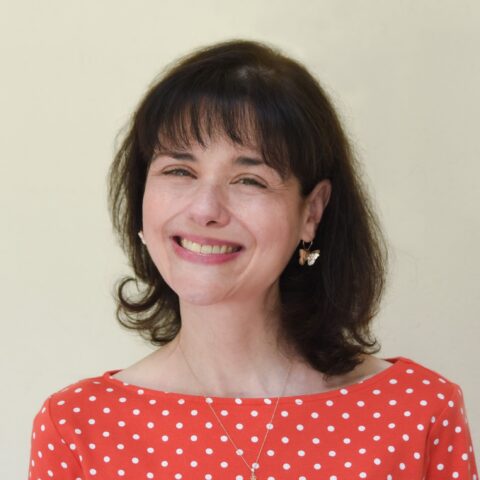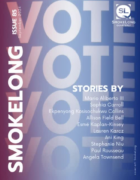I’m so engaged by the essay’s title, and how it invokes Ernest Hemingway’s novella The Old Man and the Sea. Your quest, unlike Santiago’s, is ultimately a successful one. Can you speak about your choice to title your essay toward this reference, and how it might set up a reader’s expectations? Do you see this essay as being intertextual, and if so, was this intentional from the outset or something that came up during the writing process?
I am squeezing dear Santiago’s hand across the horizon! The title came about as a way to claim residence on my “island” between youth and old age. My quest was electrified by a stubborn childlikeness, collecting trinkets and shoring up courage. Yet this was coupled with the need to claim my dignity as a woman in such a Hobbit-like habitat. As you beautifully intuited, there is also a nod to a successful quest, a victory no smaller for fitting in my own palm.
Women writers have long engaged with the importance of what Virginia Woolf calls “A Room of One’s Own.” Ownership of a personal, dedicated space/place is a powerful force in the lives of women writers, specifically. What inspired you to write about this particular space and its function in your life as a sanctuary and also a means of imaginary escape (“Sicily, or at least the Jersey Shore”)?
As my first “real” apartment, the basement flat had to become my peace-nook. I am infatuated with the image of sanctuary, so when I signed the papers on this peculiar space, I made a quiet covenant to love it, whatever that would require. For the first time, I had a place entirely my own. I was at liberty to festoon it with my spirit’s findings. I was tickled by how naturally my rather ridiculous apartment became everything from Sicily to Eden once I resolved to embrace it.
I feel a threat of violence lurking at the edges of this essay. The basement could be a space for “harboring fugitives.” There’s a binary set up between the basement apartment and “the suburbs, where the greatest dangers are a Bath & Body Works lotion that smells like high school, and pet store employees who promise ‘this gerbil is not pregnant.’” Your mother, perhaps informed by her father’s job as a police captain, sees terrors everywhere; you write that you “share [your] mother’s vigilance, but some quests are necessary.” What is the function of this unnamed danger, or violence, in the essay?
My mother’s vigilance, and my winking “rebellion,” have been a lifelong joke between the two of us. She grew up in my grandfather’s loving laser-beam of protection from genuine threats. I am her only daughter, and a Type 1 diabetic living alone. She comes by her sense of risk honestly. But this has the comedic effect of making me feel like a feral revolutionary if I drive to Target after dusk and forget to text her when I return home. So, my solo trip down the shore represented a real “no” to the message that life is more dangerous than divine. Or, perhaps, it was a moment to announce that I am old enough to swim the paradox unafraid.
At the end of the essay, we understand the object of the mollusk as a totem, a symbol of a reclaimed identity, or a kind of self-empowerment or self-claiming. Do you still have this mollusk? Do you have other totems or objects in your personal space which hold symbolic meaning?
I do still have it. I am a glutton for parables I can hold, so my condo is a little cathedral of relics. Curling my fingers around a conch or an iridescent cat, I feel the pulse and presence of my ancestors. These totems also urge me to accompany myself, to remember—to quote Henri Nouwen—that I am “the beloved.” I am a big believer in Madeleine L’Engle’s idea that “The great thing about getting older is that you don’t lose all the other ages you’ve been.” Gathered across disparate chapters, these tiny treasures urge me to own my whole ragamuffin story, and to situate it in the “Big Story” we all share.


